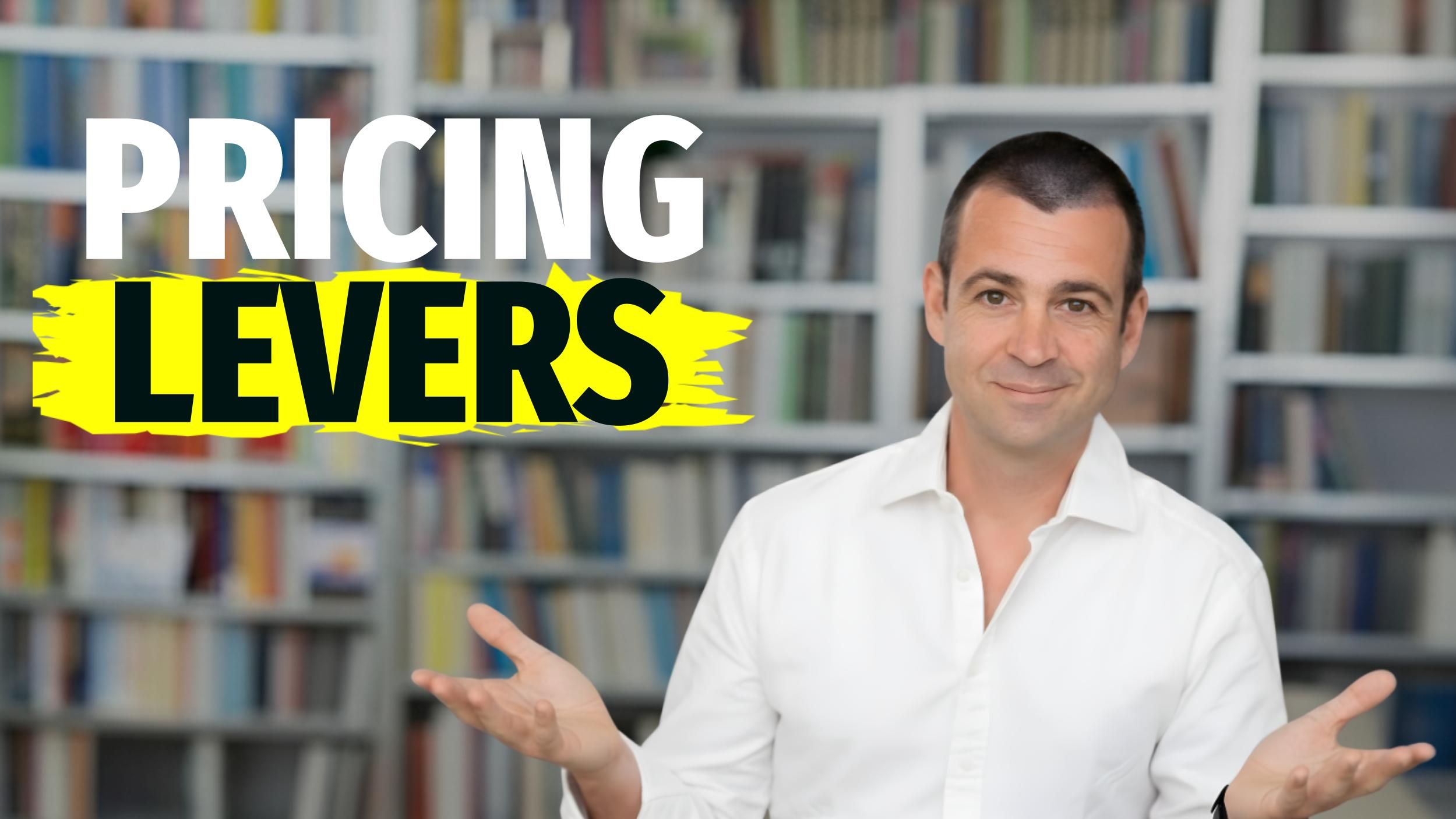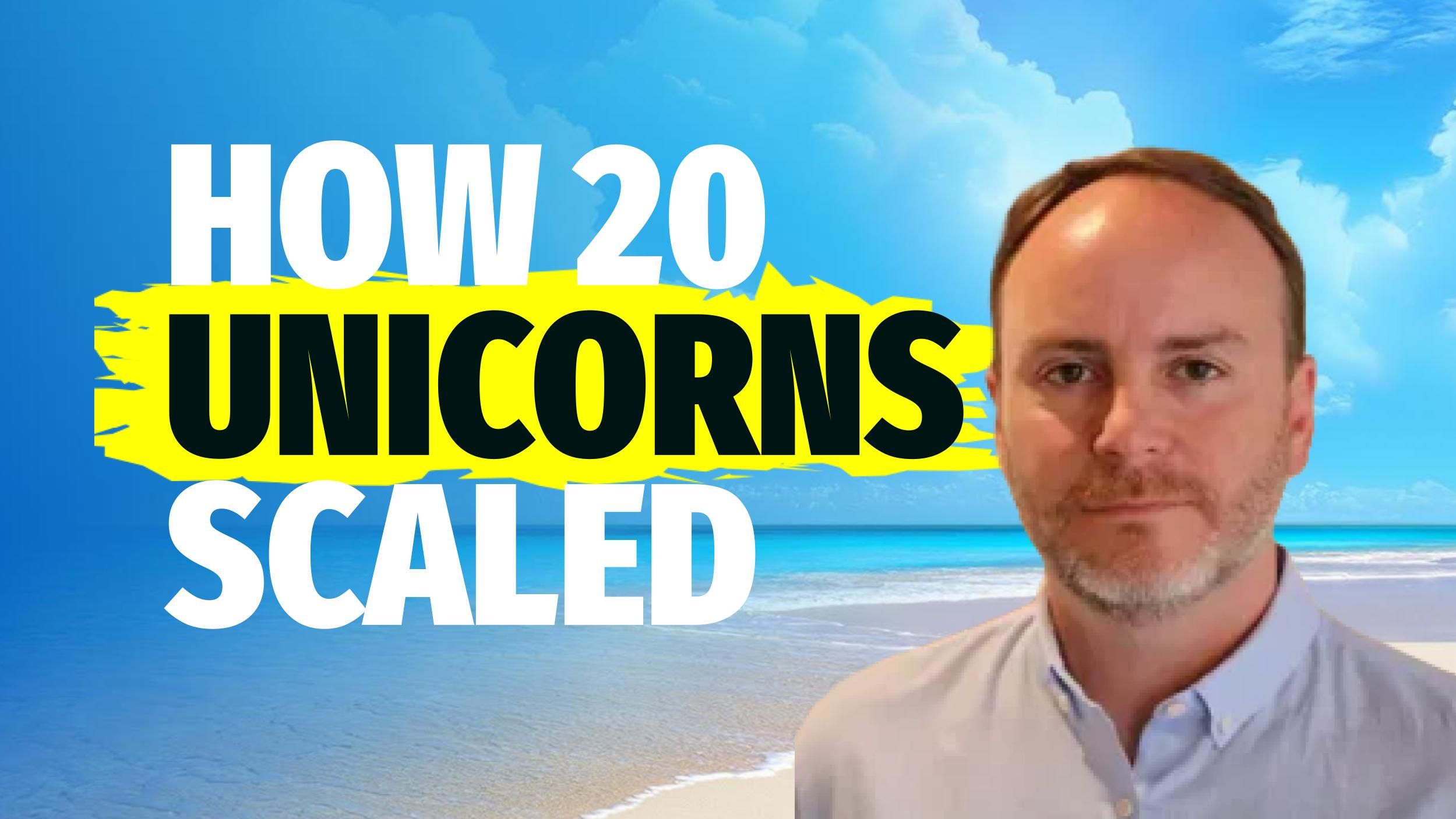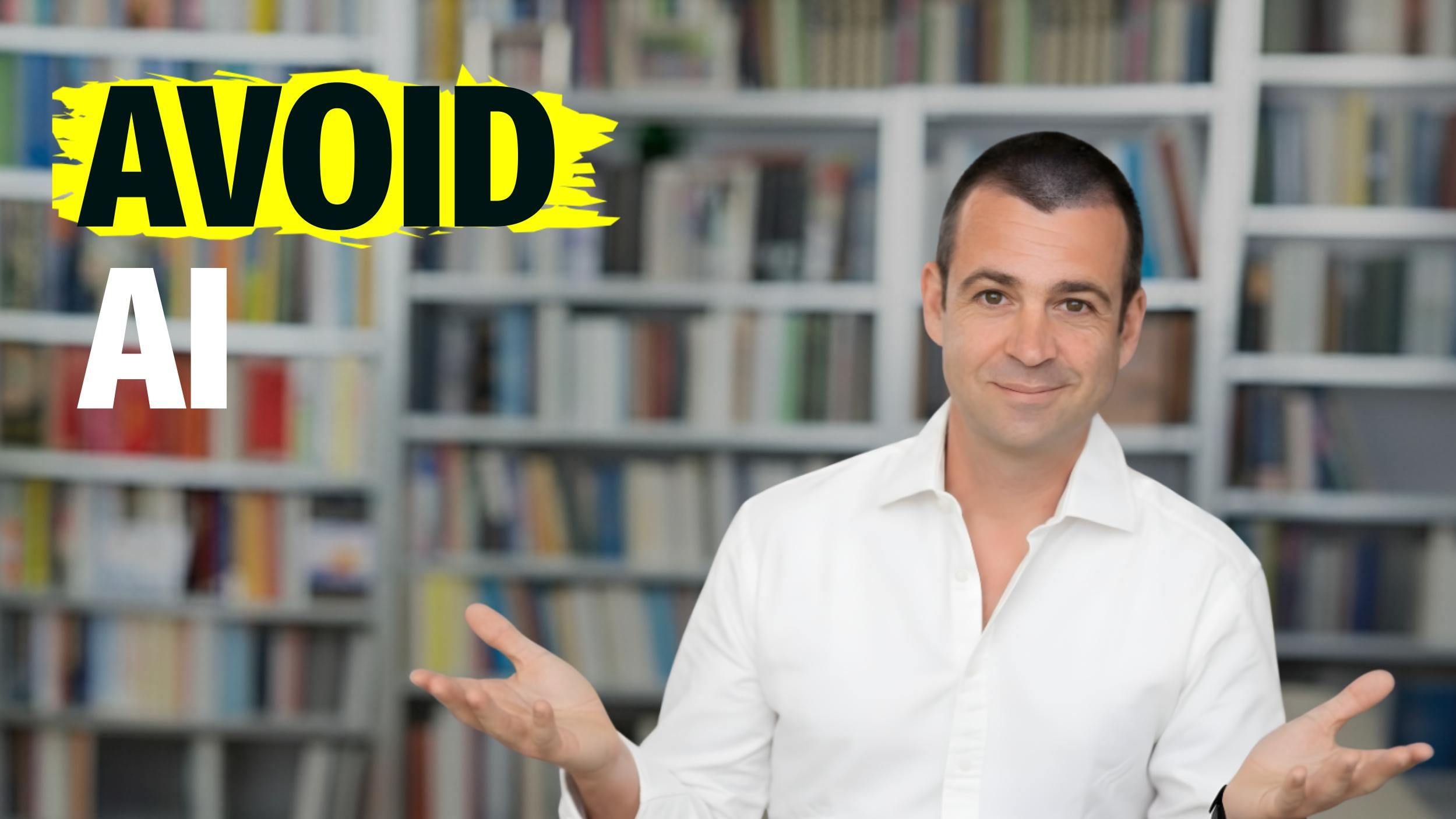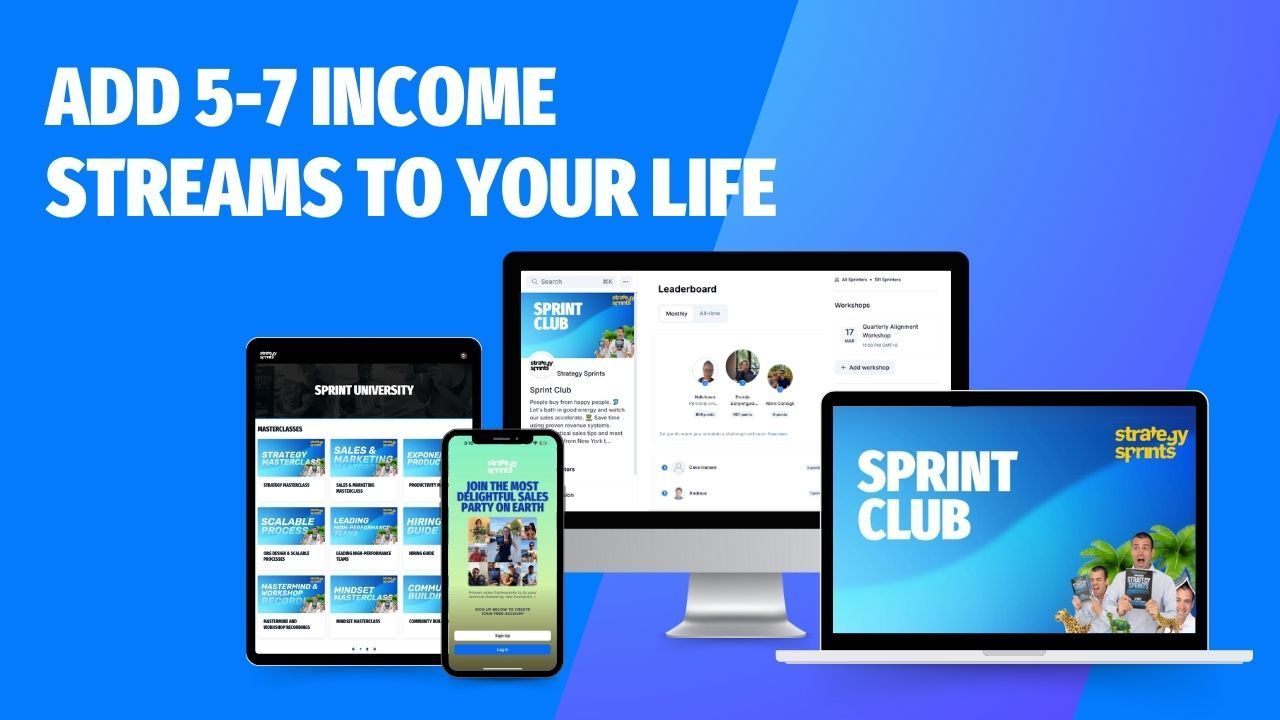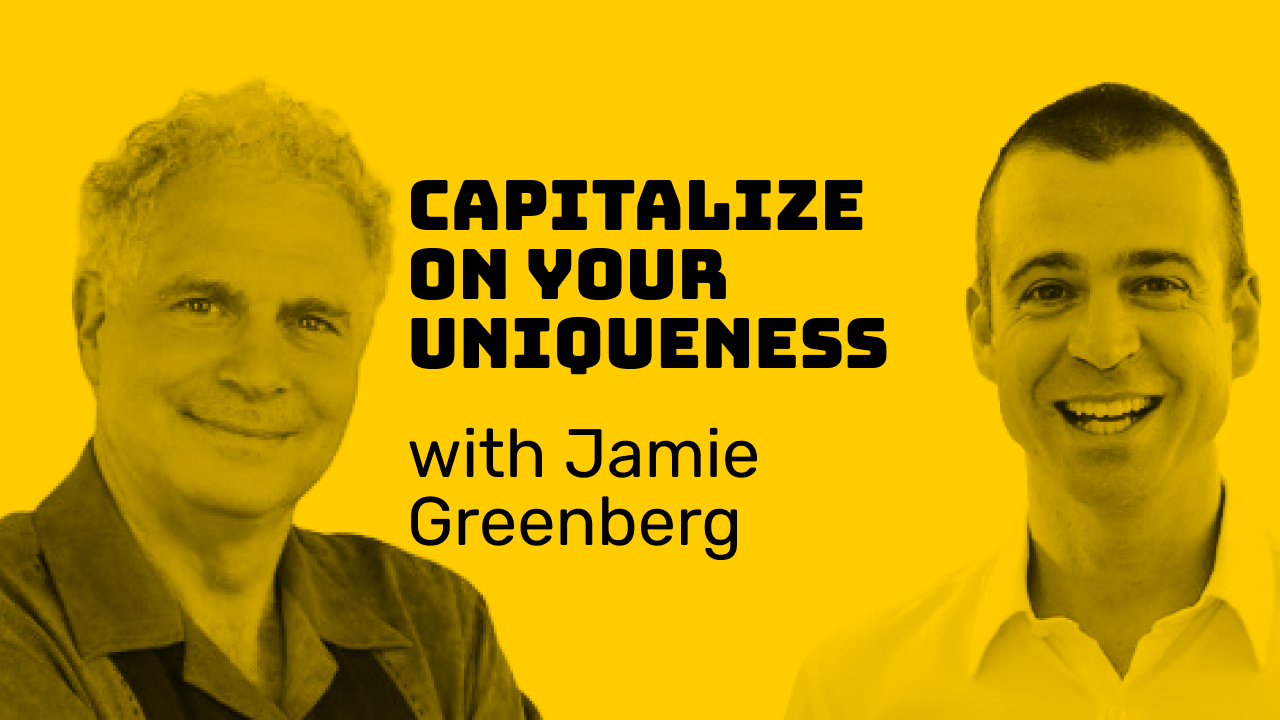
Capitalize on your uniqueness, Jamie Greenberg LIVE | STRATEGY SPRINTS 194
In this episode, Simon welcome Jamie Greenberg, the business development specialist of knowledge monetizer and business and personal brand architect of out of the box. He dramatically increase expert businesses reach and income by helping customers capitalize on their calling. By transforming them from just another coach, speaker or author into a one-of-a-kind trailblazing thought leader so they can maximize their ultimate money-making potential. Listen to Jamie’s sharing on capitalize on your uniqueness.
3 Valuable Insights:
- Capitalize on your calling
- Remove yourself from what you're doing and give yourself permission to have that space where those divine downloads can really start surfacing
- Imagination is in the pool of the universal mind. And it's just rich and incredible. We have to embrace this space of knowing that it's infinite value.
(00:03) -Simon: Three, two, one, roll the footage.
(00:17) -Simon: Welcome back to the Strategy Sprints podcast, everybody. I'm your host, Simon Severino and my guest today. Dramatically increases experts, influence and income by helping them turn their special sauce into a trailblazing thought leadership business. His passion is orchestrating a customized roadmap on how to capitalize on your thought leader. Higher calling. Welcome everybody. Jamie Greenberg.
(00:47) -Jamie Greenberg: Hey, how are you, Simon? How’s everything?
(00:49) -Simon: So cool to have you here. And every time we speak, I am energized. I am inspired. You're a force of nature. I am so curious where we end up. We want to talk about your CBO tip, which is how to organize at your IP and make it the brand and make it the business because that's your passion and it's so relevant. So I'm excited and tell us, what are you currently creating?
(01:14) -Jamie Greenberg: Well, I am so glad that you answered you asked me this question because it really provokes thought. And the point that I am right now is that when I'm working with, um, people, I want to move them into a new thought pioneering place. I want them to just take a step back from what they're doing to begin to observe themselves as a new pioneer, using new thought, the things that they're regulating on, the things that they're galvanizing with epiphanies that's coming through them. I want them to become more intimate with their inspiration, their intuition, their inclination, and their aspiration. So sometimes you just have to remove yourself from what you're doing and give yourself permission to have that space where those divine downloads can really start surfacing.
(02:14) -Simon: Divine downloads. What a wonderful phrase. I'm so curious who you pick for the strategy award?
(02:25) -Jamie Greenberg: Well, it's somebody, everybody knows, but it's Simon Sinek. It's Simon Sinek because when I saw him years ago, do that techs speech in Rhode Island. I was floored because he was the avatar that, uh, sparked, uh, me in this business because I said, God, he is so relaxed. He is so present in his thought and thought was so revelational and he was, he was just engaging and you just wanted to absorb everything and he wasn't trying to sell anything. He was just coming up with a new idea on how to do something, a new perspective. And that thing went viral. I mean, how simple can it be? So if you can get yourself in that space where you are entertaining your original design with ideas and just being able to effortlessly communicate that, I think that's the place we all kind of really want to be,
(03:32) -Simon: And people accomplish. Right? Tell us how, how does it work to, to go on that journey with you?
(03:42) -Jamie Greenberg: Well, it's, it's, it's, uh, quite fascinating to tell you the truth because, um, uh, the first part is we do these conversation catalysts, where I'm interviewing people in a very conversational way. And prior to that, uh, I haven't started to identify their fears, their doubts, their confusions, uh, things that might be holding them back. That might be things where they're trapped by the responsibilities of the day and their business. And then we start working on moving them into more of a positive expectation, faith and clarity place. So they can open up that vortex to that creative intelligence that needs to flow. I mean, I just really want them to slip past their ego right into their intuition and be totally present with what's coming down for them in their own cone. So that is the first step. And when we start to understand their revelations, those Epiphanes and those unique perspectives, we start to harvest them all those beginning middles and ends into an idea management system.
(04:51) -Jamie Greenberg: You see, now we have all this beautiful intelligence that we've archived and documented. And from there, we bring it into my signature system software, this knowledge based platform, which is really a blueprint that we, we, we look into the idea management system and we start pulling out the four major problems that they're going to solve for their market and the solutions, the four solutions that solve each one of those problems. And from there, we start to see the hub of the wheel, the online mission that they want to be able to communicate to their ideal market. So we, we get very clear on this, on this thing. And it's great for people who are entrepreneurs who have a fertile mind, but they need to be able to harness all those beautiful ideas into a beautiful knowledge-based platform for then they can take in a whole bunch of different directions.
(05:51) -Simon: How will you find their confusion and where, where the leverage points are?
(05:58) -Jamie Greenberg: These are deep issues sometimes. Um, uh, I think we get caught in patterns of entrenchments in habits of thought that when we're in it, we don't even know we're in it. So it takes a witness. It really takes a coach in these, uh, to be able to sit down and have them speak freely, to put them in a safe and vulnerable space where they can really express and dive deep into the things that they generally don't see during the day. But when they're asked the right questions, they can start identifying those places that are, are fearful, that, uh, things that they're just been repeating, these recycled stories that keep going around in our brain, and then we have to stop them. Because once we identify them, we can stop them and we can start readjusting that vibration, raising the vibration into the story that we want to become. How's that,
(07:02) -Simon: And I resonate a lot with what you say that you have to bring yourself in the right state in order to be open for the downloadable beauties that are there and all this energy, because what I do every morning is that I go running before, before my day starts, I do one hour of something that brings me into that state. For me, it's running and listening to a specific, specific meditation or specific music and that, and then I am in a specific state, and then the day is really different and I'm ready to, to cope with what's there in a different way.
(07:42) -Jamie Greenberg: Yeah. You're setting your tone, which is so magnificent. You when you take the time to feel your heart pulsating, the energy that comes from the source of life itself, you are identifying with who you are. You're older, wiser, broader self and when you can work with that interdependence, you're in the perfect place to start your day to do your business, and to receive the personal evolution that you need to move forward in that day. So good for you.
(08:27) -Simon: That's about one example of somebody who is working with you and, um, and where the process is leading more thought leaders.
(08:37) -Jamie Greenberg: It's a great, it's a great question. I, I recently had a, um, a client, um, who was very successful, you know, earning close to $300,000, uh, does a lot of high end work, but he, he just stuck in a rut and he was starting to get depressed. He was starting to get, uh, an interested in the work, and it became very routine for him where he wasn't being totally present with what he was doing. And, uh, he was afraid to stop for a while and kind of go half mass for a while to see if he could spend time to figure out what he w w what he's going to do. You know, a lot of us in our lives are spending 10, 20 years in a profession, in a career. And we don't take the time to say, is this really what I want to do?
(09:34) -Jamie Greenberg: Because you know, our purpose changes all through life. And if we're to now have the courage, you know, to step back and say, Hey, I got to take a look at this and see if this is really what I want to do. Uh, I'm not evolving. I'm not growing anymore. And usually that's when you start getting dis-ease in your body and it could be mentally, and it could be physically. So he was in this kind of space. And we started to do that whole, who are you really exercise? And he was able to distill these problems and issues and say, look, I got to take a risk. I can't go on like this. It's not making me feel good. I'm not present with my family. And he started to discover a new way of eating, throw out everything that he was doing, but he started finding a new way on how, where he was at in his life and what he wanted to accomplish so that's what we started working on. And that's when this whole new thought pioneering thing really started coming up for me. I said, because it's not really the word thought leader in order to be a thought leader, you have to have new thought.
(10:42) -Jamie Greenberg: It's not about just talking about, you know, what you're doing in your industry and the perspectives of your industry. You have to come up with some good ideas, some, something that you want to change, something that's disruptive, you know, something that's irritating the hell out of you, you know, that, that pulls something up from the, from your gut, you know, that you think go out and speak about what some passion, some conviction, that's what lands impactfully on people. So once we, I got him into a place you're using his full emotional palette. You know, he was then able to start identifying things that were starting to feel good, was starting to feel good thoratic. And he says, you know, that's what I want to do. And we came up with this nanny and I were fooling around with his signature program now, calling it birth certificate 2.0. And he, you know, it came out of the videos that he w he was doing. He came out of the writings. I found it in one of his things. So in that extrapolation of his, his, you know, his IP, which we do through writing and through doing a lot of videos, I sort he's, uh, um, in my birth certificate 2.0, I said, that's it. That's going to be the hub of your wheel.
(11:54) -Simon: Nice, and you then help people package it, the four main problems that you solve. And then around that create the modules of what will become their offer.
(12:05) -Jamie Greenberg: Well, again, once we have the blueprint done, then we start to repurpose it based on their talents and abilities. You know, we start building out streams of income that they can do, uh, in, in, you know, in a proper way. That's a manageable for them, especially if they're transitioning from one thing into another, you have to be careful. You don't upset your living. Uh, and also that platform can also be used for all your social media content, because it all works to the brand, keeping it clear, constant, and consistent. So all those cool little concepts that are working towards your online brand mission, your movement are great subjects for your, uh, your social media. They could be 20, 20, uh, subjects and chapters for your book. They could be 21 episodes for your podcast to start. So it's, it's a great place to be able to repurpose something without having to create a new product or a new program for every new platform that you get into.
(13:10) -Simon: So, and I'm so excited to hear your, the three books that shaped you most after one word from our sponsors.
(13:18) -Speaker 2: Hey, if you love what you are hearing, you will love our free masterclasses. Go grab them at strategy, sprints.com
(13:29) -Jamie Greenberg: Books. Yes, I, I took a peek at my bookshelf here, and, um, there's a lady by the name of Denise Brousseau and she wrote a book called how to become a thought leader. And, uh, she's a brilliant woman and spent many years in nonprofits and, um, uh, different corporations. And I found that book very inspiring. She had a completely, a new take on it and studied it and took the time to really articulate how one becomes a thought leader in all different kinds of industries, people who were, uh, very, very successful and people who just had a brilliant idea and was passionate about it and wanted to turn it into, into a business. But it was the idea that just move them and galvanize them to be able to go out and do it because they just felt so passionate about it. So I, I really liked your definition of it. And she, she was a big influence, big influence. Second is as a man think of by James Allen, the unit, do you know that book? Oh, you gotta read that book. It's 102 page, double space book, but the most profound book in the world, uh, it's over a hundred years old, uh, James Allen, uh, as a man thinketh is just talks about all types of new thought philosophy and, um, change your thinking, change your life. Just a beautiful book you can read in an hour.
(15:17) -Jamie Greenberg: And the last book is, start with why by Simon Sinek. No, I just, I'm a big fan of his and, um, why starting with why I use, I, I created my own example of it is that if you walked into an art gallery and you're looking around at all the paintings and you find when you like, yeah, that's pretty cool painting. I would consider that for my living room. And then all of a sudden, the artist comes up to you and he says, he starts telling you the whole story and the inspiration behind the painting. And when he's done, you look at the painting, it has a completely different meaning.
(15:59) -Jamie Greenberg: So that's the start with why, why did he do it in the first place? What's the inspiration behind that? So it's not, it's not why you do what you do as he says, it's, it's not what you do. It's why you do what you do. So it's the why that we all have to start to embrace and understand when you take that step back and look at the why things come into focus, it comes, it comes into focus a little bit better,
(16:28) -Simon: And it changes everything. It changes the painting depending is physically. Yes. But for you, it's not the same anymore.
(16:35) -Jamie Greenberg: No, no, no. It's, uh, it's remarkable. How just such, when, when somebody starts explaining why, uh, the, the whole complexion changes, cause there's an earnestness, there's a truth telling beneath it that, uh, that's authority marketing,
(16:56) -Simon: I'm curious. One thing you recently changed your mind about.
(17:05) -Jamie Greenberg: Uh, it was, um, it was this definition of thought leader that was bothering me because it was becoming one of those terms out in the business world, like personal branding or marketing or coaching, you know, they, they become nebulous. They lose their meaning. They lose the label. And I, I, like I mentioned before, in order for, in order to become a thought leader, you need new thought. You need to have identified the ideas that are really coming from your own cone. And I wanted to slightly change that label to new thought, pioneering. I want you people to pioneer with their new thought. I want them to embrace their new thought because we're powerful creators. We're constantly getting a stream of new ideas and, and, and, and concepts. And I want people to become publishers of their own mind. I want to become vigilantly, vigilantly alert and document the beginning, middles and ends. Stop looking for the logic, just grab the beginning, middles and ends and harvest them and write them down. And you'll see the logic will start to take shape that that's that's, that's it Simon.
(18:26) -Simon: And it's fun. There are some philosophies that say, thoughts are out there and they are searching for a thinker. So load them like the on et cetera. And then on the other side, when you're writing a book or when you're creating something, you know, that it's work, you have to sit down, you have to write, there is a specific form, eat, all have to fit together. I'm just writing a book. And so I always have to think, what does the publisher need? What does the client, the reader need? And, uh, how, how can I rewrite and rewrite? But on the other side, it's like you say, it's really just cultivating the openness
(19:10) -Jamie Greenberg: Look, Simon. If you were able to take your brain out of the, out of your head, right. And cut it in half, and you picked up both halves and you started to shake it, there wouldn't be one idea that would fall out on the table. Your imagination does not take place in your brain. It's just the switching station. Your imagination is in the pool of the universal mind. And it's just rich and incredible. And you have to be, you have to embrace this space of knowing that it's infinite value. Everybody's a channel. We just have to slip past the ego and let it come down. And don't worry. You know, it could be a seed of an idea. It could be this. It could be that we're all looking for the end. And we're all thinking about the, how we know we don't have the time.
(20:08) -Jamie Greenberg: We don't really take the time to let it mature, to let it, to let it do its natural process. If you stick a seed in the ground with all that intelligence in the seat, what does it have to do? It has to throw down first so we can anchor itself and then grow up. So the idea is when you're thinking, it's planning itself in the ethers, so it can, so it can draw things that are likened to itself and start to begin your manifestation. It doesn't, you know, it, it, it manifestation takes time to nurture and you have to be able to do that in your mind. And those thoughts, a little pings of energy. They're very real.
(20:48) -Simon: So what's your creative process? How does your day look like?
(20:51) -Jamie Greenberg: I'm glad you look, I'm glad you asked my creative process. Simon. I do a similar thing to you. I, I sit in my chair. I meditate for about 15 minutes with a thing that I called the pendulum breath. You know, it sort of, it is 11 breaths that go, uh, from very small to very big all the way up. And then I take one exhale out and then I start to do my visualizations. I start to see the things that I want for that day. I start to look at my relationships, where can I alter some things that are a little sticky? Okay. I look at it for the way they are. And then I try to imagine it on how I want it to be. And that's my practice. And then Simon, when I open up my computer, the first thing I do is I just give a little exercise to imagination, to my imagination, right? And I put on my imagination antenna.
(21:57) -Jamie Greenberg: You see, because this is the way I connect to the universe. And then I just go bounce it up and down. And I tell you, I get a flood of ideas, right? When I open up my computer and start my day.
(22:11) -Simon: That's a practice.
(22:12) -Jamie Greenberg: That's a practice.
(22:13) -Simon: Where can people find more about you stick around?
(22:20) -Jamie Greenberg: Well, uh, they can hop over to my website at, uh, I seek unique.com. And, uh, there, if you, uh, sign up on my, a little opt-in box where we give away this, it's really, really a, a beautiful gift and it's enlightening, and you could really get a start. I'm putting together your own knowledge based platform. It's comprehensive. And we run you down through the steps. There's a bunch of cool little graphics in there. And, and if you get stuck or you need some help, just give me a call. We have a strategy call offer in there. And, uh, we can go over it, uh, in a pure strategy session.
(23:12) -Simon: Beautiful. And who should be my next guest?
(23:17) -Jamie Greenberg: Well, there's an extraordinary human being who lives in Australia. And he does an extraordinary podcast called Innovoa buzz. I N N O uh I N N O V A buzz. Uh, he's done over 375 podcasts. And, uh, he puts together the most, um, page after the podcast. And it's a great promo piece that anybody can use. So I would wreck his name is Juergen Strauss,
(23:57) -Jamie Greenberg: And he's, he's a good buddy of mine and, um, just a, a sweet guy, smart guy. And, uh, I think he would do you guys would hook up nicely?
(24:09) -Simon: Beautiful. I like him a lot. I was on his podcast and he said, yes. And he even made the party, like for all the podcast guests
(24:20) -Jamie Greenberg: Did I see, I don't know if I saw you.
(24:23) -Simon: He brings us together sometimes. I don't, I don't always can make it, but I try to make it the next time.
(24:29) -Jamie Greenberg: Yeah. I didn't see you on it. Yes, that was well, you know him. I have to give you somebody else.
(24:38) -Simon: Thank you so much for being on the show. Please come back soon. Keep inspiring the world.
(24:45) -Jamie Greenberg: You are a great interviewer and thank you so much for having me on. Those questions were a great, great springboards. They were great. Thank you.
(24:53) -Simon: Thank you so much. Bye bye.
Get our expert sales tips delivered
By submitting you agree to receive our weekly Strategy Sprints Newsletter as well as other promotional emails from Strategy Sprints. You may withdraw your consent at any time via the “Unsubscribe” link in any email or view our privacy policy at ant time.


